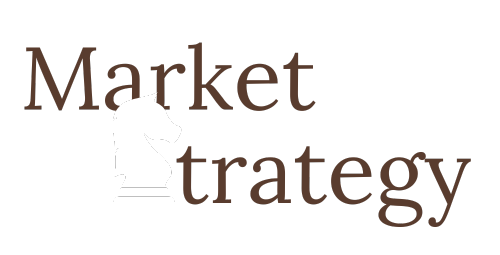It feels like every time you blink search engines are changing, especially how they find, index, and show website content in results. Keeping up with "search engine optimisation seo" might be the key. With over 4.3 billion pages on the indexed web, finding the right way to reach your people gets tougher.
How Search Engines Work
Search Engine Crawling
Search Engine Indexing
Search Engine Ranking
Major Algorithm Updates
Search Engine Optimization and AI
SEO Strategy
SEO Objectives
Setting Business Focused Objectives
Types of Search Engine Optimization
Technical Optimization
On-Page Optimization
Off-Page Optimization
Why Is SEO Important?
Specialized Areas of Search Engine Optimization
SEO for Images and Videos
Other Niches Within Search Engine Optimization
Conclusion
So how do search engines sift through all that content? Search engines send out "crawlers," to discover web pages.
Crawlers follow links from page to page. Once a page is found, its content is added to the search engine's index.
Search engine algorithms are systems that retrieve data from its search index. They give the most relevant and reliable sources in an instant.
Crawlers, spiders, or bots check for new website content. They look for changes on the web, reviewing updates on pages they have found before.
This discovery is a major reason search engine optimization matters. These processes vary from one engine to the other.
Indexing is when a search engine reviews content and decides if it's useful. A crawler will index the page if its considered worthwhile.
Not all pages get indexed. Reasons might be, duplicate content, spammy content, lacking links to the page or inability to crawl the page.
To improve the quality, you need to follow the Google Search Essentials. Think about Google and also remember what people need from your website.
Once a page is crawled and indexed, it can be ranked. Search engines use different ranking factors to find the most relevant content.
There are more than 200 ranking signals to sort content.
Some ranking signals might be:
Keywords used on a webpage.
The loading speed of a webpage.
The number of quality backlinks on a webpage.
To give people better results, search engine algorithms change often. Some changes are bigger.
Here are some of the most significant ones from Google:
Panda (2011): Dealt with content farms.
Penguin (2011): Addressed spammy links.
Hummingbird (2013): Better understood natural language queries.
RankBrain (2015): Google implemented machine learning to interpret the query context.
BERT (2018): Processed natural language in order to understand queries better.
Helpful Content Update (HCU) (2022): Gave importance to content offering value, shifting to people first approach..
AI is showing up more. Search engines are giving people AI-generated summaries, which can change things. This year alone changes how AI has impact with AI Overviews and Bing’s generative search results.
AI is expected to get better in understanding what people are really after. This helps engines to show better responses to people.
Like most things in marketing, you need a clear goal. Your SEO strategy goal has to focus on putting out the right content.
A good strategy can also show you what's working. Having data helps you decide which efforts you should tweak.
The SEO world keeps changing. Updates, like Google’s SEO starter guide, affect how search results appear.
Keyword rankings
Traffic you get to your site
The amount of time people spend on your pages
Your website domain authority
The objectives will vary. Think of this for businesses.
If you're selling something, you will track sales or leads. But informational websites might look more at brand awareness.
Think of search engine optimization (SEO) as having different parts, each playing a role in its visibility. A strong presence means every angle has to be covered. This covers how well it is built to content, even efforts beyond the website.
These efforts come together. You are trying to boost presence in the massive sea of more than 4.3 billion webpages
Technical Optimization is behind the scenes work. It fixes the things not working as well as improves code on the back-end.
Gary Illyes shared in a Reddit AMA that making sites "crawlable". You can work through submitting your sitemap to Google.
On-Page Optimization deals directly with your website pages. Making pages easier to find involves improving your page content.
This gives search engines more to review when understanding and prioritizing content. Your content strategy involves, titles, meta descriptions and having relevant keywords.
Make sure people can understand it. If humans love it, Google tends to as well. Optimize pages to match the search intent, keeping visitors on page longer, as a result.
Off-page SEO involves actions you take off of your own pages. Having links from trustworthy sites sends quality signals to search engines.
Other ways to promote your work may help indirectly with search presence. Content might get noticed through social media marketing efforts. This brings extra benefits in showing its impact and wider usefulness.
SEO is super important because search results get intense. Everyone is trying to get on page one, but most people start on Google when using search engines. The global search engine market industry is expected to top $122 billion in a few short years.
Targeting local customers calls for its own SEO methods. With local SEO, the strategy targets maps listings on top of regular searches.
Video and images require technical and on-page effort. This improves presence when people do image or video specific searches.
Other forms focus on the unique situation of a company or even its physical locations. The enterprise level often brings a lot of pages needing improvement at once.
Websites with worldwide traffic use a slightly different form known as international SEO. Some might specialize in reaching different search engines like China's Baidu or Naver from Korea.
Are you struggling to implement what is needed? With search engine marketing you might choose both, depending on budget. The efforts you put in with paid and unpaid approaches play a significant role when done correctly.
So where should we put effort, time, and money, and what is going to last with digital work today? There is a path, though there's not always a perfectly clear path that will be found every single day. The one I find that keeps coming back as a constant is SEO. With "search engine optimisation seo" and smart work, your pages could rank for terms you thought impossible a short time ago.
A key element I have seen of great SEO is taking the right approach. Some believe every trick out there but are actually harming long-term growth. By staying on course and following the best guidelines and search essentials your overall presence can benefit.
.png)










